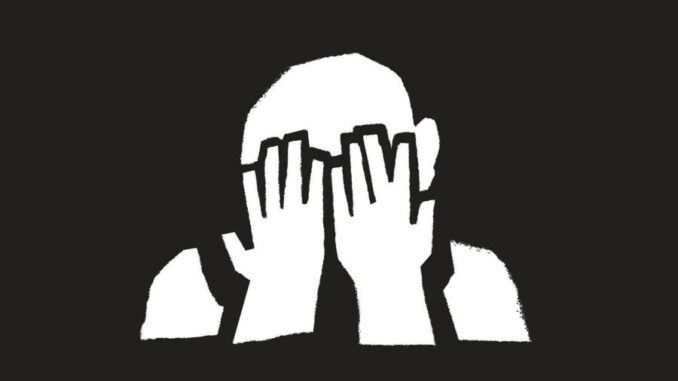
Sam Bankman-Fried has seemed very keen to get one thing across in the media blitz he embarked upon last week. It’s not so much about owning up to having done anything unethical or unlawful (or not “knowingly” anyway); it’s more that he wants us to know he finds himself in a particularly uncomfortable emotional state: embarrassment.
“A mistake that I feel pretty embarrassed to have made [is that] I substantially underestimated what the scale of a market crash could look like,” the former chief executive of collapsed crypto exchange FTX told journalist Andrew Ross Sorkin in a live-streamed interview from the Bahamas. “I had embarrassingly little knowledge about what was going on,” he told crypto podcast The Block. “I was incorrect on Alameda’s balances on FTX by a fairly large number and [an] embarrassingly large one,” he told YouTuber Tiffany Fong.
Now, if one were to be ungenerous, one might point out that it is rather surprising for someone who is feeling so embarrassed to decide to go on quite such an extensive media tour, especially given that his lawyers had advised against it. But such a devastating fall from grace might bruise the ego. This is a man, after all, who was happily posing on magazine covers while being dubbed “the next Warren Buffett” as recently as August.
I’m not sure, however, whether feeling embarrassed quite cuts the moral mustard when we are talking about as much as $8bn having gone missing, as many as 1mn creditors having lost their money, and a collapsed $32bn crypto empire being investigated by criminal prosecutors for alleged fraud on a vast scale (which Bankman-Fried denies).
One emotion that I have not seen Bankman-Fried talking about is shame. There is a significant difference between the two states: feeling embarrassed turns on the worry that we have accidentally revealed some unattractive or negative aspect of ourselves to the outside world. Feeling ashamed, meanwhile, involves the unpleasant recognition that we have done something morally wrong or reprehensible.
Bankman-Fried’s feelings of embarrassment are worries about image rather than wrongdoing, and are therefore morally neutral. If he were talking about feeling ashamed, this would indicate he was taking some kind of moral responsibility for what he has done. Instead, his claims of embarrassment are simply a kind of emotional virtue-signalling, without any of the heavy moral baggage that comes with taking accountability.
“Shame is connected with a sense that what one does, or did, or what one is . . . threatens the values that one is attached to,” Fabrice Teroni, professor of philosophy at the University of Geneva and co-author of In Defense of Shame, tells me. “Embarrassment comes out as a more superficial emotion, and definitely not a moral emotion.”
Not only does Bankman-Fried appear to be lacking in shame; he seems almost contemptuous towards those who feel complex moral emotions. In some leaked Twitter messages between him and Vox journalist Kelsey Piper, he criticises former colleagues: “Gary is scared, Nishad is ashamed and guilty”. He also tells Piper that those overseeing FTX’s bankruptcy proceedings are “trying to burn it all to the ground out of shame”. Luckily for his own conscience, “the world is never so black and white”.
Shame got a bad rap in recent years — the philosopher Martha Nussbaum, for instance, has argued that it is a “primitive” emotion that is about the “desire to hide from our humanity”, and that it “impedes the moral progress of society”. And indeed, the kind of shame that we feel for things that are beyond our control doesn’t seem either healthy or helpful.
But Teroni argues that even when we feel shame about things that we are not responsible for, that does not mean that the emotion itself is negative; rather, it might help us focus on the sorts of values that we should adopt.
An utter lack of shame seems to have been what led to the spectacular collapse of FTX. Had Bankman-Fried felt that there was more than his own image at stake, would he have behaved quite so recklessly?
While the shamelessness of the crypto world might be particularly brazen, the problem goes deeper than that. With the decline of religion, it has become more difficult to agree on a set of shared values, and to work out the right way of dealing with transgressions — both in others and in ourselves. But we must. Embarrassment is far too flimsy an emotional consequence.
jemima.kelly@ft.com






Be the first to comment